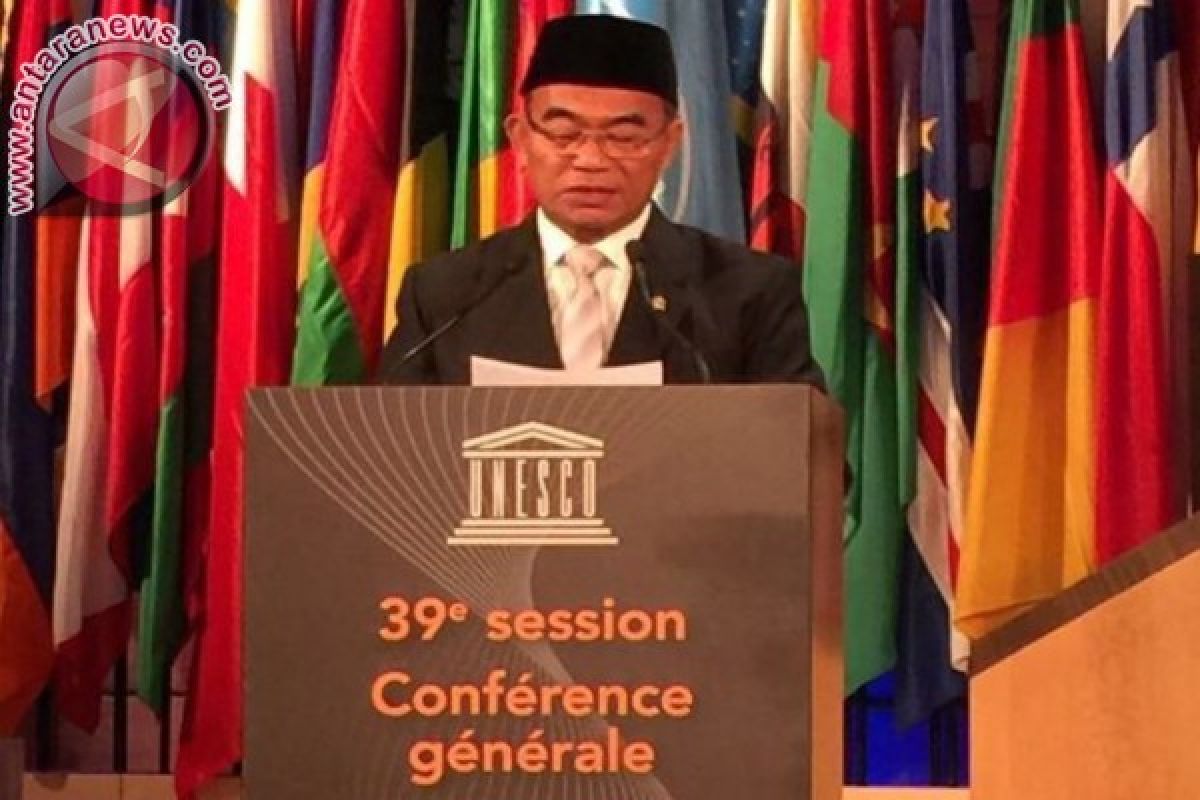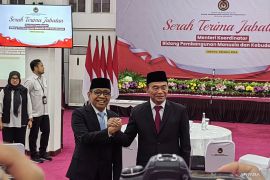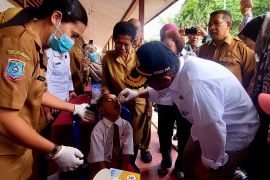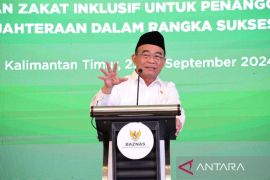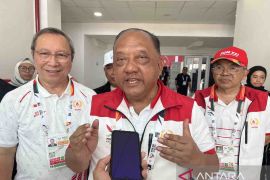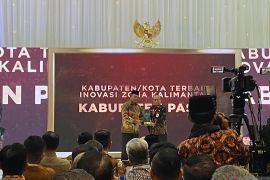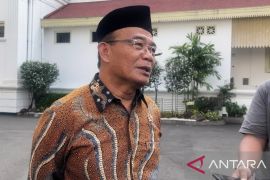We have also revitalized the national curriculum by integrating character, competence, and literature ..."Paris (ANTARA News) - The UN Educational, Scientific, and Cultural Organization (UNESCO) should proactively formulate new, creative measures to promote educational reforms, so youngsters are ready for the technology-based digital economy, Indonesias Education and Culture Minister Muhadjir Effendy stated.
The statement was made by the minister, who is acting as head of the Indonesian delegations at the 39th UNESCO Assembly in Paris being held from Oct 30 to Nov 14.
During the biannual meeting, the minister remarked that the UNESCO should be ready to face global challenges, including the rising inequality, spread of radicalism and extremism, emergence of racism and prejudice, and the ongoing degradation of the ecosystem.
As a responsible member of the international community, he said Indonesia is ready to contribute to the global initiative to find the best way for UNESCO to help create a better world.
Moreover, he expressed belief that Indonesia had upheld its commitment to preserving the universal values of the tropical rainforest legacy.
"We are hosting the Asia-Pacific Eco-Hydrology Centre and a Regional Training program for sea biodiversity," he remarked.
The minister then revealed that Indonesia had recently hosted UNESCOs World Press Freedom Day back in May in Jakarta, which demonstrated the countrys strong commitment to developing a free, independent, and responsible journalistic environment.
Moreover, with the realization that culture is the very DNA of sustainable development, Indonesia hosted the World Culture Forum in Bali in both 2013 and 2016.
The forum then adopted the Bali Declaration that laid emphasis on the countrys commitment in mainstreaming culture into its policies while at the same time highlighting the importance of the achievement of the UNs Sustainable Development Goals that is also a vital agenda for the UNESCO.
During the General Plenary Debate, Minister Effendy said Indonesia had witnessed a significant advancement in the education sector.
The number of those enrolled in early childhood education programs has reached 72.3 percent. Last year, Indonesia had received an award from the UNESCO for Girls and Women Education, specifically for its outstanding program in gender mainstreaming.
The Primary School Participation Rate has reached more than 100 percent, and the dropout rate reduced to 0.26 percent. The youth literacy rate has reached almost 100 percent.
It is believed that this is the result of the "Smart Indonesia Program," a policy ensuring that all children from poor families can continue their education until the age of 12.
"We have also revitalized the national curriculum by integrating character, competence, and literature to equip students with 21st century skills," he remarked.
Revitalizing vocational education is another major priority that has just begun to be implemented by the government, as Indonesia is actively strengthening its capacity in the fields of science and technology.
(Reported by Zeynita Gibbons/Uu.KR-ARC/INE/KR-BSR/F001)
Editor: Priyambodo RH
Copyright © ANTARA 2017
